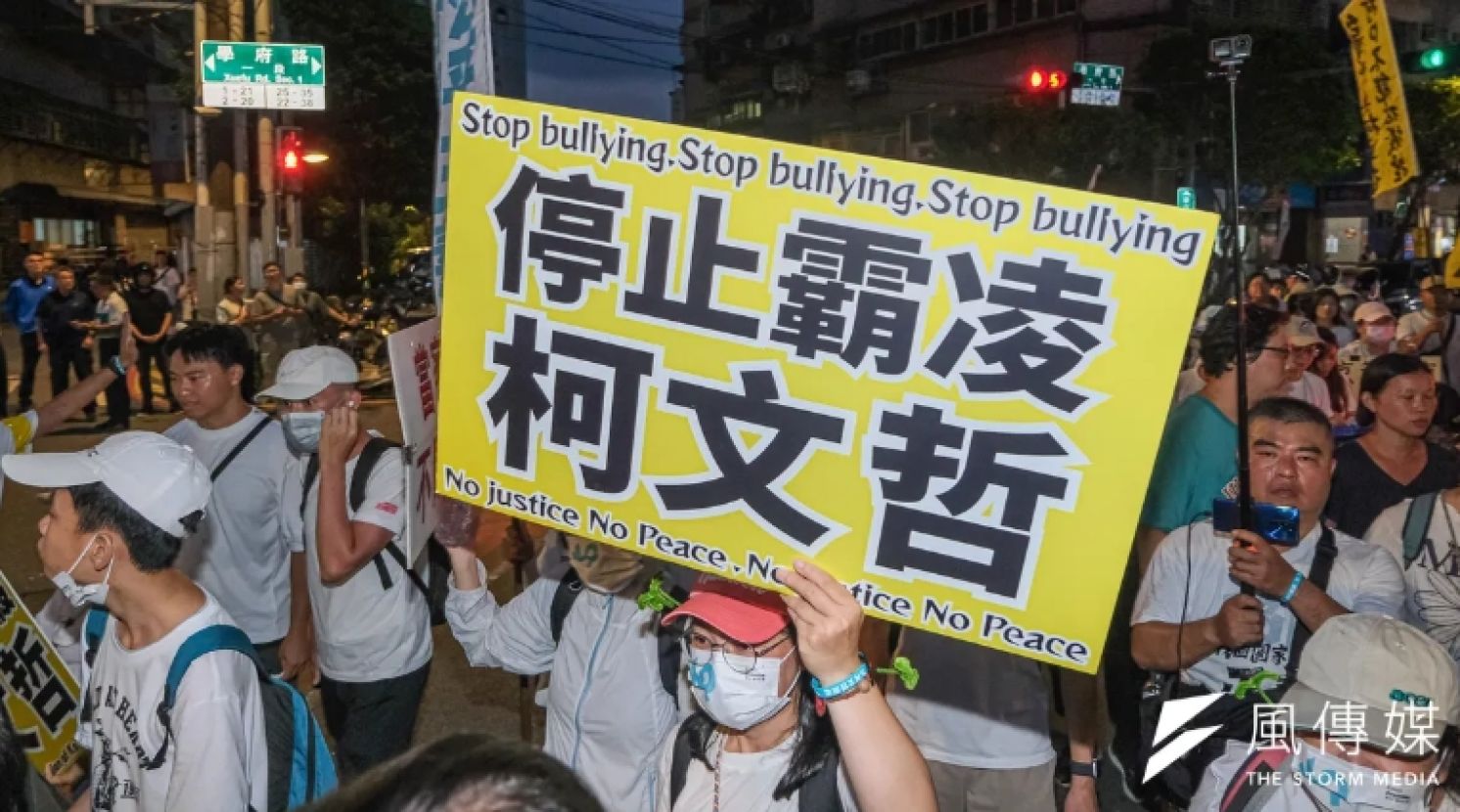
41.6% Find Ko Wrongfully Imprisoned, Majority Upset with Prosecution's Performance
Comprehensive Report by Taiwan Weekly
Ko Wen-je, former Taipei mayor and former chairman of the Taiwan People’s Party (TPP) accused of corruption in the Living Mall case, had been detained for a full year before finally being released on September 8 with an unprecedented NT$70 million (approximately US$2.3 million) bail. He fiercely criticized the judiciary, insisting the case was a wrongful imprisonment: “Why let the entire nation fall into division? Lai Ching-te, think carefully!” He declared he would never surrender, never bow down.
However, the Taipei District Prosecutors Office immediately filed an appeal, and on September 12, the High Court revoked the bail ruling and sent the case back to the district court for reconsideration. Whether Mr. Ko will truly regain freedom remains uncertain.
The latest poll shows that 42 percent of the public agrees with Mr. Ko’s claim of wrongful imprisonment. As many as 54 percent expressed dissatisfaction with the Taipei District Prosecutors Office’s handling of the case.
Upon walking out of the court on September 8, Mr. Ko gave a nearly 10-minute statement. He noted that prosecutors had investigated the Living Mall case for a year, both domestically and abroad, yet found nothing. He said that the ruling Democratic Progressive Party (DPP) never expected the TPP to be so clean. He lambasted the case as a wrongful imprisonment: “Taiwan has been democratized for 30 years, yet such injustices still exist?”
Mr. Ko said that over the past year he encountered many judicial personnel—judges, prosecutors, bailiffs—who worked diligently and lawfully. But he accused a few prosecutors of destroying public trust in the judiciary of the Republic of China. “Everyone knows, the 32-to-0 recall vote—the prosecutors played a major role,” he added.
He described the year as extreme torment. “Prison and pretrial detention are completely different. In prison, you can work, even serve food; in detention with incommunicado measures, you can’t see sunlight 24 hours a day. Locked in a small cell, I could only hear voices without seeing people. Even when escorted out, everyone in the corridor had to face the wall and was forbidden to look at me.”
Hundreds of supporters rallied outside the court, shouting “Ko Wen-je is innocent.” Some cried in tears. The short 200-meter walk from the courthouse door to the street corner took Mr. Ko 18 minutes before he finally departed by car.
In response to Ko’s accusations, Spokeswoman Karen Kuo of the Office of the President said that out of respect for the judicial process, the Office would not comment on ongoing cases but would not accept false smears.
A poll released by the Taiwan Public Opinion Foundation (TPOF) on September 12 showed that 42 percent of respondents agreed with Ko’s “wrongful imprisonment” claim, while 38.2 percent disagreed. Regarding the Taipei District Prosecutors Office’s handling of the case, 54 percent expressed dissatisfaction, with only 26.8 percent satisfied. Notably, compared to data released in January, satisfaction dropped by 13.7 percentage points, while dissatisfaction surged by 17.9 points.
TPOF Chairman You Ying-lung indicated that the Taipei District Prosecutors Office seemed to have become the target of public criticism, a highly serious warning sign. While opinions remain divided on whether Mr. Ko’s case is a wrongful imprisonment, a majority lean toward believing it is. This, he stressed, is bound to generate strong political effects, as Mr. Ko is not only the former TPP chairman but also a high-vote presidential candidate who lost in 2024.
Mr. Ko’s return to the media spotlight has drawn attention to the TPP’s future direction. Supporter communities have even begun calling for him to run again in 2028. However, according to reports, Mr. Ko will first focus on facing the judiciary and fighting for acquittal in the first trial, with party affairs handled by current Chairman Huang Kuo-chang. On September 10, the TPP Central Committee passed its nomination rules for the 2026 local elections, adopting a “start with easier districts first” principle. In line with Mr. Ko’s 2024 proposal for a coalition government, Chairman Huang also instructed the Policy Committee to establish a “Coalition Government Research Group,” which outside observers interpreted as preparation for possible cooperation between the blue and white camps in 2026 or 2028.
Kuomintang (KMT) lawmakers also voiced support, stating that Mr. Ko had personally experienced the judicial tactics of the DPP administration. Therefore, the strategy and goal of blue-white cooperation remain unchanged: to remove the DPP from power in the 2028 election, end political interference in the judiciary, and restore judicial justice and fairness.